Helping Hands: Monkey Helpers provides highly trained capuchin service monkeys free of charge to adults across the United States living with mobility impairments in order for them to receive the priceless gifts of greater independence, companionship, and hope. We support 20-30 active placement teams, 40 foster families, and 50 monkeys in various stages of training. We are the only organization of our kind and uphold a high standard of care and assistance to our recipients and monkeys.
What kinds of monkeys are trained for service?
Helping Hands monkeys are male and female capuchin monkeys. Known for their intelligence and curiosity, capuchins have great dexterity that enables them to manipulate many objects. They have an affinity to humans and their small size (typically 6-8 pounds) makes them wonderful home companions.
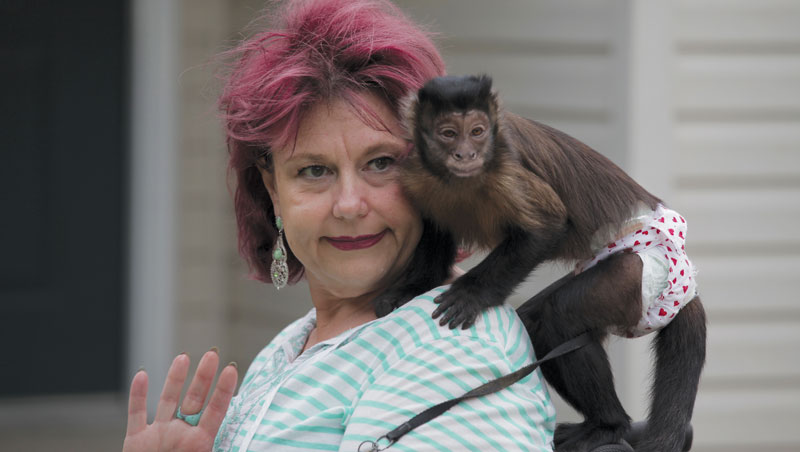
Photo: Erin King Photography
"Sometimes I think we share one brain," says Maryanne. "If I ask myself 'why am I in this chair?' I can't come up with a good answer. But rather than focus on the negative, I try to look for the positive in everything. What good has come from me being in the chair? Had it not been for my spinal cord injury, I wouldn't have Jessica in my life. And she is amazing."
Capuchin monkeys have a long lifespan (30-40 years). Their service careers can reach 30-30 years (far longer than other service animals), depending upon the age at which they completed training and were placed as a monkey helper.
What is the matching process like?
Our social worker and placement specialist leads new applicants, their families, and caregivers through the application and pre-placement orientation process. They monkey-applicant matching process considers the preferences and lifestyle of the recipient and his/her support network, and the specific tasks and assistance that will be most helpful.
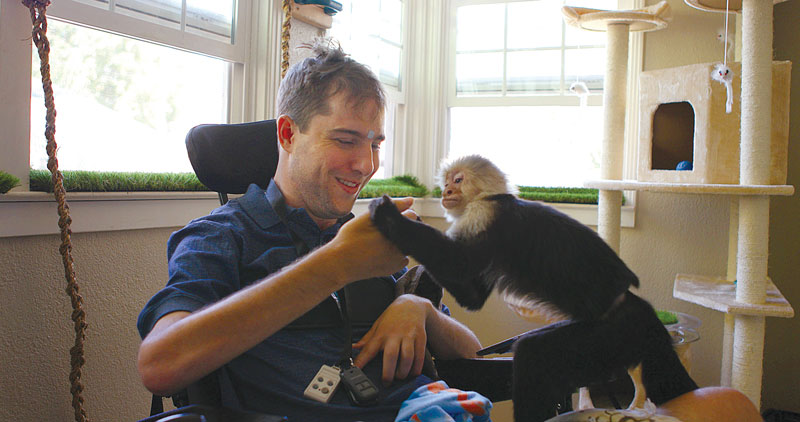
Photo: Trillium Studios
"Our relationship is as magical and special as I always dreamt it would be... What I realized is, no matter how much preparation and reading you do, each service monkey is unique and each journey is unique."
Helping Hands is committed to providing all recipients with the support and training they need during a new service monkey placement.
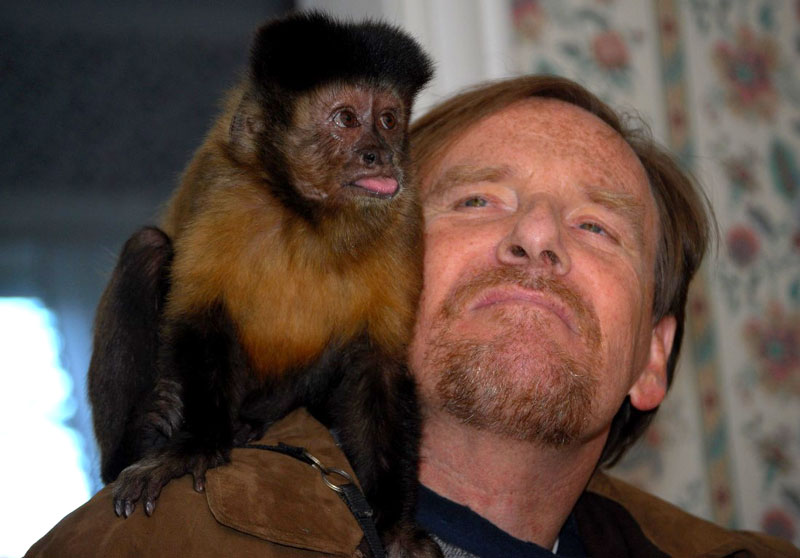
"From day one, we have felt supported and cared for. Helping Hands was and continues to be here for us to answer any questions that might come up, or to babysit Farah if the need arises."
What types of tasks do the monkeys do?
Monkey helpers are trained to assist with tasks such as:
- Retrieving dropped objects such as cell phones or remote controls
- Opening bottles and inserting straws
- Turning on buttons/switches for remotes, phones, and computers
- Repositioning limbs on a wheelchair after a muscle spasm to prevent sores and other injuries
- Turning pages and scratching itches
When they graduate, they can accomplish many tasks, are comfortable working with household items like refrigerators, CD players, and televisions, and are familiar with manual and power wheelchairs.
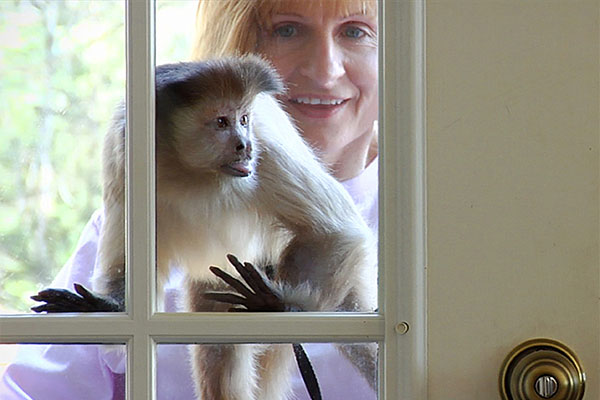
Photo: Trillium Studios
"Amy can reach things on a shelf or in a drawer and put it back. She can get things out of a refrigerator like a bottle, open it and put a straw in it... When she hands me something like a remote or a phone, she gives it to me face-up. Amy is very loving towards me and always looks to me for approval, affection, support, compassion, and to meet all of her needs. It is a very symbiotic relationship."
Are service monkeys allowed everywhere that service dogs are?
No, monkeys are trained to perform tasks within the home environment only. We believe it's important to respect our monkeys' hierarchy and acknowledge that service in public would be stressful on both monkeys and their recipients alike.
Are there any other organizations like Helping Hands?
We are the only organization like this in the world. One of the main reasons for our success is that the training of Helping Hands monkeys relies upon the interface of a multitude of professional disciplines that few other organizations are able to provide.
About Helping Hands: Monkey Helpers
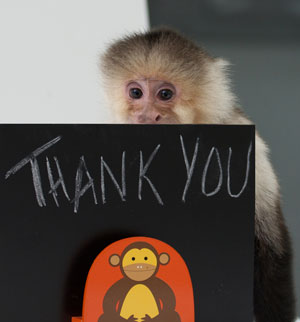
Photo: Gildson Gomes
Helping Hands trains and places service monkeys to provide daily, in-home assistance to people living with spinal cord injuries or other mobility impairments. We carefully match monkeys with recipients and provide active ongoing supervisory support.